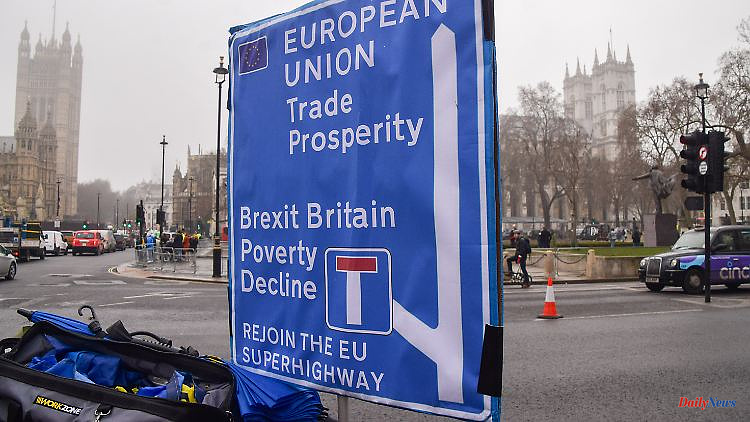On January 31, 2020, Great Britain will leave the European Union after 47 years of membership. After three years of Brexit, the German Chamber of Industry and Commerce draws an honorable balance - and does not expect an improvement.
According to the German Chamber of Industry and Commerce (DIHK), Brexit is an "economic disaster" for both Great Britain and the EU. For German companies there is still considerable planning and legal uncertainty, said DIHK President Peter Adrian on the third anniversary of Brexit. "There is a risk of trade conflicts because Great Britain is distancing itself from the EU exit agreement."
In particular, the British plans to deviate from EU rules, such as data protection or food, are a burden for German companies, Adrian said. This can also be observed in the trade figures: "While Great Britain was Germany's third most important export market in 2016, the country slipped to eighth place in 2022."
On January 31, 2020, Great Britain left the EU after 47 years of membership. According to the DIHK, German companies have more than 2,100 branches in Great Britain and employ more than 400,000 people. British companies, on the other hand, have 1,500 branches and almost 300,000 employees in Germany. "There is a lot at stake for the economy on both sides of the Channel," said Adrian.
Polls show that a majority of Britons now not only consider Brexit to be a mistake, but even advocate re-entry. However, a possible return to the EU is currently not an issue in the political debate. According to the British political scientist Anand Menon, a return of Great Britain to the EU is out of the question in the next 15 years. He sees absolutely no chance there, said the head of the think tank UK in a Changing Europe.
The Social Democratic Labor Party is clearly ahead of the Conservatives in polls. It is therefore considered likely that Labor leader Keir Starmer will replace current Prime Minister Rishi Sunak from the Tories after the upcoming election in 2024. In the past, Starmer has advocated moving away from Brexit, but is now only campaigning for improvements to the exit agreement.
Menon believes that even closer rapprochement through additional agreements between the EU and a future Labor government would pose a problem. The EU will think: "Do we really want to sign a deal with these people when the Conservatives come back in five years and tear everything up in the air?" said the professor at King's College in London. For Sunak, who primarily has an eye on the recovery of the economy, it would be difficult even for the relationship with Brussels to be eased. Menon said it was unclear whether he would be able to assert himself against his party's Brexit supporters. Speculation has it that Sunak's predecessor, Boris Johnson, is just waiting for an opportunity to accuse the prime minister of betraying Brexit and pave the way back to the top of government.












